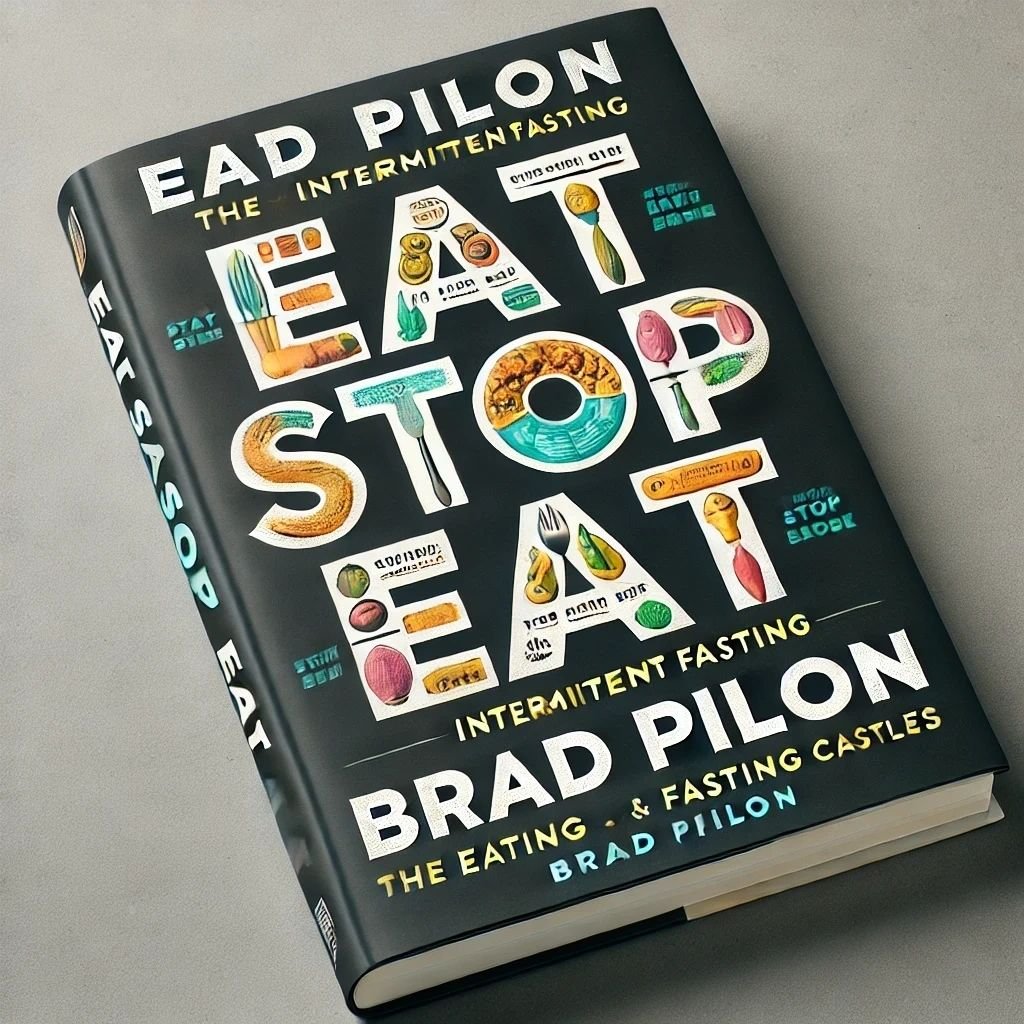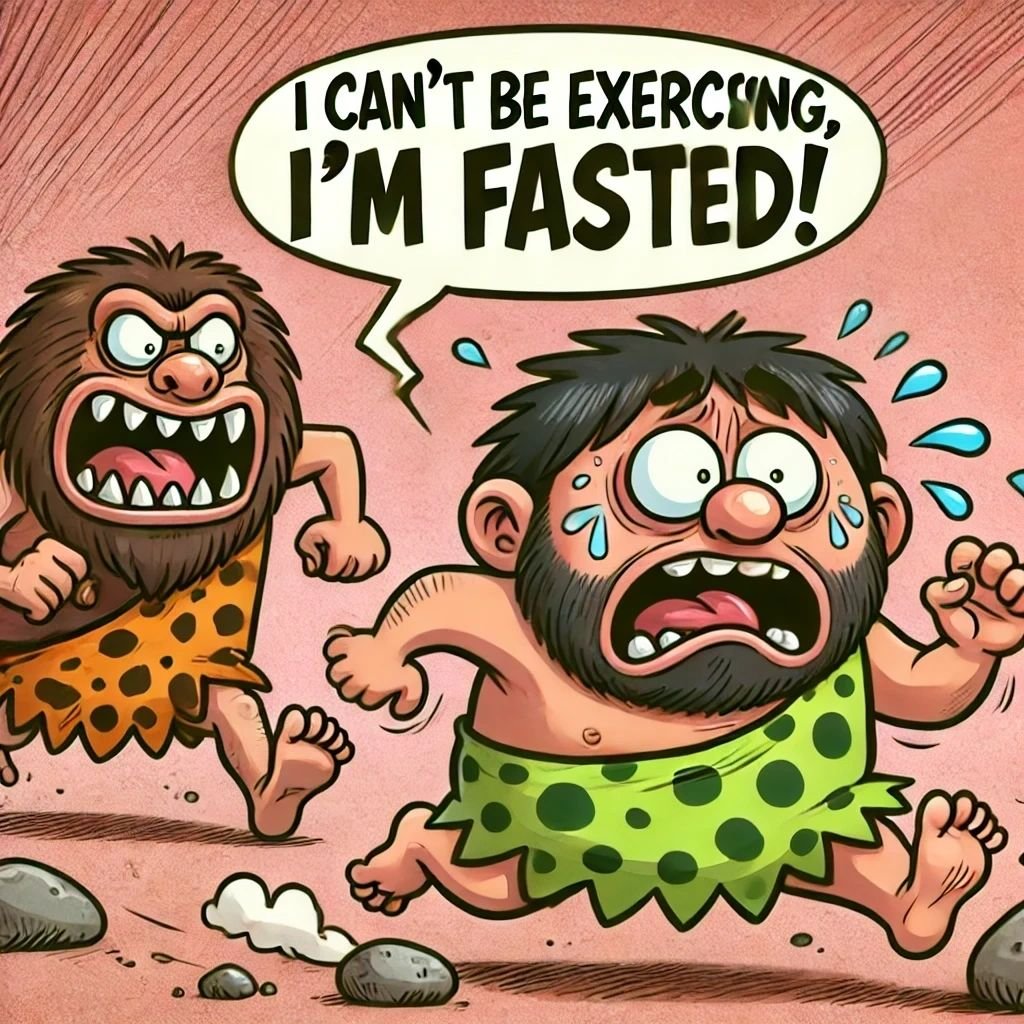I’m fresh back from a Spanish holiday and feeling inspired to write this post. I certainly overate, as one does on holiday, but generally stuck to my fasting routine. The gluttony embodied by filling my plate with food meant some serious time spent at the hotel restaurant. What is Intermittent Fasting? It was a complete game changer for me, and it could be for you too…
On holiday, I met a significant number of people who all posed one question to me, “How do you look like that and eat like Jabba The Hutt’s stunt double?” I explained I don’t always eat this quantity and generally still adhere to an intermittent fasting schedule, even on holiday.
Some factual, inaccurate, and downright bizarre replies were spurted at me, in a multitude of British accents. What better blog post to mark my return than an ultimate intermittent fasting guide. Intermittent fasting has been one of the best weight loss mastery solutions I’ve found.

After reading and digesting this article, it’s my full intention to ensure you’ll never again raise a question about what is intermittent fasting for fat loss, and I sincerely hope this article will become your definitive one-stop ultimate intermittent fasting guide.
I shall aim to cover everything important you’ll ever need to know about intermittent fasting and whether it should factor as a major tool within your dietary arsenal.
Sound good? Let’s begin.
FAQs About Intermittent Fasting and Fat Loss
1. What is intermittent fasting, and how does it work?
Intermittent fasting is a dietary approach where you alternate between periods of eating and fasting. It helps create a calorie deficit by reducing your eating window, making it easier to control your intake while allowing your body to access stored fat for energy.
2. Will intermittent fasting slow down my metabolism?
No, short-term fasting can actually increase your metabolism by boosting norepinephrine, a hormone that aids fat burning. Research shows that intermittent fasting doesn’t cause metabolic slowdown when done correctly and can enhance fat oxidation.
3. Can I exercise while fasting?
Yes, exercising while fasting is perfectly safe for most people and can enhance fat burning. Fasted cardio and resistance training can be effective, as your body taps into stored fat for energy. Just ensure you’re staying hydrated and getting enough protein to support recovery.
4. Do I have to fast to lose fat?
Not at all. Fasting is simply one tool to help manage calorie intake. The key to fat loss is maintaining a calorie deficit and eating enough protein to preserve muscle. Whether you fast or spread your meals throughout the day, what matters is consistency and adherence to your goals.
5. What’s the best fasting method for beginners?
The 16/8 method is a great starting point. You fast for 16 hours and eat within an 8-hour window. It’s simple to follow and adaptable to most lifestyles. From there, you can experiment with other methods, like the 5:2 diet or 24-hour fasts, if they suit your goals better.
6. Are there any health risks with intermittent fasting?
Intermittent fasting is safe for most healthy individuals, but it’s not recommended for everyone, such as those with a history of eating disorders or certain medical conditions. Always consult a healthcare professional if you’re unsure.
What Is Intermittent Fasting? The History of Fasting
To further understand what is intermittent fasting, we need to take a trip into history.
Intermittent fasting (IF) has gained immense popularity in recent years as a potent tool for fat loss and overall health improvement. Contrary to some scaremongers’ beliefs, fasting isn’t a new and modern-day ‘dangerous’ practice. The history of fasting is vast, and our 3 square meals a day is only a relatively new trend.
Fasting, the practice of voluntarily abstaining from food for a set period, has ancient roots. It has been a part of various religious and cultural traditions for thousands of years.
Many religions incorporate fasting into their rituals. For instance, Ramadan in Islam involves fasting from dawn to sunset for a month. In Christianity, Lent involves fasting or giving up certain foods. Similarly, fasting is a part of Hinduism, Buddhism, and Judaism.
Beyond religious practices, various cultures have historically used fasting for health, spiritual, or even survival reasons during times of food scarcity. Do you think that our ancestors didn’t go days or sometimes weeks without eating? If the body couldn’t survive without food for lengthy periods, we’d be long gone by now.

Bodybuilding Prior to Fasting
Before intermittent fasting became mainstream, the bodybuilding community (and general recreational fitness population) largely adhered to the belief that eating multiple small meals throughout the day was essential for muscle growth and fat loss. This approach was based on the idea that frequent meals would keep the metabolism high and provide a constant supply of nutrients to the muscles.
The shift towards intermittent fasting challenged these traditional views, offering a new perspective on optimising body composition.
Unfortunately, pockets of the fitness community still adhere to the belief that multiple small meals a day (chicken and broccoli bro) is still the magical way to get ripped. Actors who have dramatically changed their physiques for roles will quote the chicken and broccoli formula. This is frequently a perfect mask for the real golden child of the transformation – steroids.
Personally, I believe that the reason this myth won’t die is based around sacrificial reasons. Let me elaborate. If a simpler method existed that allowed you to eat what you want (within reason) and still become as ripped as you desire, the smokescreen of ultimate sacrifice is lifted. Without an ultimate sacrifice tale to tell, effort is diminished and the dedication to getting ripped holds slightly less kudos.

How I Found My Answer To What Is Intermittent Fasting
Brad pilon And Martin Berkhan: The Fasting Goats
Those of you familiar with my other posts will recall, I failed to get ripped for a holiday back in 2010.
Following my holiday, I searched for answers to my failure. I came across two names I would soon become well acquainted with:
Brad Pilon’s ebook ‘Eat Stop Eat’ is still popular to this day. Brad encouraged a 24-hour fast twice a week, and his information certainly took a while for this bro to digest and trust.
Martin Berkhan – Another godfather of modern intermittent fasting. Creator of the Leangains protocol, Berkhan’s approach involves a 16-hour fast followed by an 8-hour eating window. His method has been particularly popular among those looking to build muscle while losing fat.
Both men are in exceptional shape, have vast scientific knowledge/credentials, and truly proved to me that intermittent fasting was a lifestyle I could incorporate and achieve excellent physique results with.
I’ve rarely been a breakfast person, and 1-2 larger daily meals were a great fit with my natural tendencies. Whenever I’d attempt to eat the ‘bro’ 6 small meals a day, I was always left hungry and eventually overate.
When quizzed on my physique improvements, I attributed the results to intermittent fasting. It was still a fringe and rarely heard about practice back in 2011, and I was met with negative responses and a stark warning that my metabolism and health would be wrecked! I like to think of myself as an early trendsetting adopter. 🙂
Other famous Fasting Names
Over the years, intermittent fasting has become more mainstream and widely adopted as a sustainable practice to achieve weight loss and physique improvements. I’ve been answered the question, “What is intermittent Fasting?” ever since.

Other famous names have contributed towards intermittent fasting becoming more mainstream. They are:
Dr. Jason Fung – Nephrologist and author of “The Obesity Code,” a key advocate for intermittent fasting and its benefits for weight loss and diabetes.
Michael Mosley – British journalist and author who popularised the 5:2 diet through his book “The Fast Diet.” Sadly, he’s recently passed away.
Mark Sisson – Health and fitness expert, founder of Mark’s Daily Apple, and author of “The Primal Blueprint,” who advocates for intermittent fasting as part of a primal lifestyle.
Dr. Valter Longo – Biogerontologist and author of “The Longevity Diet,” known for his research on fasting-mimicking diets.
Rhonda Patrick – Biomedical scientist and health advocate who has promoted the benefits of intermittent fasting through her podcast and research.
Dr. Peter Attia – Physician and podcaster who discusses the science and benefits of fasting on his platform, “The Drive.”
Thomas DeLauer – Fitness expert and YouTube personality who educates viewers on the benefits of intermittent fasting for health and fitness.
Dr. Sara Gottfried – Physician and author of “Brain Body Diet,” who includes intermittent fasting as a tool for hormonal balance and overall health.
These individuals have played significant roles in promoting intermittent fasting through their research, books, media appearances, and online content.
What Is Intermittent Fasting Is Being Asked By Many More People
Several factors have contributed to the widespread popularity of intermittent fasting:
Scientific Research – Numerous studies have highlighted the benefits of intermittent fasting for weight loss, metabolic health, and longevity.
Simplicity and Flexibility – Unlike traditional diets that require frequent calorie counting or meal planning, intermittent fasting is straightforward. It focuses on when to eat. It’s considerably easier opening up MyFitnessPal and logging food once or twice a day.
Endorsement by Influencers – Fitness influencers and celebrities have endorsed intermittent fasting, further boosting its appeal to the masses. A rare occasion when influencers have proven their use.
Cultural Shifts – There has been a growing awareness of the importance of metabolic health and sustainable dieting practices, making intermittent fasting an attractive option for many.
Fasting isn’t popular with everyone. It will still take a considerable amount of time for the majority to understand that breakfast isn’t the king of all meals and your metabolism doesn’t slow from fasting.
Remember that nutrition is an early science. Many scientific mistakes have been made over the years:
- The vilification of saturated fat which has played its fair share of causing our low testosterone epidemic.
- Cholesterol being the bad guy
- Smoking being good for you
- Cocaine in Coca-Cola…
Just because 999 people claim stupidity, it doesn’t make one disagreeing person incorrect.

Methods of Intermittent Fasting
In answering what is intermittent fasting, we need to understand that Intermittent fasting comes in various forms, catering to different lifestyles and preferences. Here are some of the most popular methods, some of the founders have been referenced above.
16/8 Method (Leangains)
This involves a 16-hour fasting window followed by an 8-hour eating window. It is one of the most popular and manageable approaches.
I’m going to take this opportunity for a shout-out to Martin Berkhan for writing one of the best fitness articles I’ve ever read! This isn’t for the faint of heart, but it’s well worth a read. I’ve definitely suffered from this disease in the past…
5:2 Diet
This method involves eating normally for five days a week and restricting calorie intake to around 500-600 calories on the remaining two non-consecutive days.
Eat Stop Eat
This approach, popularised by Brad Pilon, involves fasting for 24 hours once or twice a week.
“The key to long-term fat loss is calorie reduction, and intermittent fasting is a useful strategy to create the necessary deficit while maintaining muscle mass.”
— Brad Pilon, Author of Eat Stop Eat.
Alternate-Day Fasting
This method alternates between fasting days (with minimal calorie intake) and non-fasting days (normal eating).
Warrior Diet
Involves eating small amounts of raw fruits and vegetables during the day and consuming a large meal at night, typically within a 4-hour eating window.
The beauty of the above methods of intermittent fasting is you don’t need to religiously follow one way. They can all serve as excellent tools within your fat loss and physique arsenal. More on this below.
What Is Intermittent Fasting: Top 5 Fasting Myths
Despite its benefits, intermittent fasting is surrounded by several myths and misconceptions. Here are the top five fasting myths:
Fasting Leads to Overeating
While some worry that fasting may cause overeating during eating windows, research suggests that it can help regulate appetite and reduce overall calorie intake. A study in Obesity Reviews indicated that intermittent fasting could help control hunger and promote weight loss.
Fasting Causes Muscle Loss
Contrary to popular belief, fasting does not lead to muscle loss when combined with regular resistance training and adequate protein intake. A study published in the Journal of Translational Medicine in 2016 found that intermittent fasting can preserve muscle mass while reducing body fat.
Protein is king! Ensure your protein goals are being covered within any eating window and you’re golden.
“A study published in the Journal of Translational Medicine in 2016 found that intermittent fasting preserved muscle mass while significantly reducing body fat in participants.”
— Journal of Translational Medicine (2016)
“Fasting has been shown to preserve muscle mass and encourage fat loss, especially when combined with resistance training.”
— Dr. Krista Varady, Fasting and Obesity Researcher.
Fasting Slows Down Metabolism
Studies have shown that short-term fasting can actually boost metabolism by increasing norepinephrine levels, a hormone that aids fat burning. Research published in the American Journal of Clinical Nutrition demonstrated that fasting for short periods can enhance metabolic rate.
“The body’s metabolic rate doesn’t slow during fasting. In fact, fasting for short periods can increase metabolism by boosting norepinephrine levels.”
— American Journal of Clinical Nutrition.
Fasting Is Unhealthy
Fasting has been practiced safely for centuries. When done correctly, it can improve various health markers, including insulin sensitivity and inflammation. A review in the Annual Review of Nutrition highlighted the health benefits of intermittent fasting.
You Can’t Exercise While Fasting
Many people successfully combine fasting with intense exercise, experiencing enhanced fat burning and improved performance. A study in the Journal of the International Society of Sports Nutrition found that fasted exercise can increase fat oxidation.

What Is Intermittent Fasting: Top 5 Fasting Benefits
Intermittent fasting offers numerous health benefits, supported by scientific evidence. Here are the top 5 fasting benefits:
Weight Loss and Fat Loss
Fasting helps reduce calorie intake, increase fat oxidation, and improve metabolic rate, making it effective for weight loss. A 2015 review in the Journal of the Academy of Nutrition and Dietetics found that intermittent fasting is a viable strategy for mastering weight loss and fat loss.
Improved Insulin Sensitivity
Fasting reduces insulin resistance, lowering blood sugar levels and decreasing the risk of type 2 diabetes. A study published in Metabolism: Clinical and Experimental showed that intermittent fasting improved insulin sensitivity.
“A review published in the Annual Review of Nutrition highlighted that intermittent fasting improves insulin sensitivity, lowers blood sugar levels, and reduces inflammation.”
— Annual Review of Nutrition (2015)
“Intermittent fasting can lead to increased insulin sensitivity and reduced risk of type 2 diabetes. This is due to fasting lowering insulin levels and improving the body’s ability to use glucose effectively.”
— Dr. Jason Fung, Nephrologist and expert on fasting.
Enhanced Brain Function
Fasting promotes brain health by reducing oxidative stress, inflammation, and promoting the production of brain-derived neurotrophic factor (BDNF). Research in Nature Reviews Neuroscience highlighted the neuroprotective effects of intermittent fasting.
“Intermittent fasting increases levels of brain-derived neurotrophic factor (BDNF), a protein that supports brain health, learning, and memory.”
— Dr. Mark Mattson, Neuroscientist.
Increased Longevity
Animal studies suggest that fasting can extend lifespan by improving metabolic health and reducing the risk of chronic diseases. A study in Cell Metabolism indicated that intermittent fasting could increase lifespan and improve health span in animals. This can be achieved by generally reducing calories to under maintenance, but fasting makes this a darn sight easier.
“Research published in Cell Metabolism demonstrated that intermittent fasting can extend lifespan and improve healthspan in animal studies, showing potential longevity benefits in humans as well.”
— Cell Metabolism (2017)
Cellular Repair and Autophagy
Fasting triggers autophagy, a process where cells remove damaged components, promoting cellular repair and longevity. A study in Autophagy described how intermittent fasting induces autophagy and supports cellular health, via a reduced calorie intake.
“Short-term fasting is not only safe, but can also enhance metabolic health by reducing oxidative stress and inflammation, two major contributors to chronic disease.”
— Dr. Valter Longo, Biogerontologist and expert on fasting-mimicking diets.
What Is intermittent Fasting: Top 5 Unproven Fasting Claims
We’re deep into the article and thus far I’m showing bromance towards intermittent fasting. That said, there are some unfounded and unproven fasting claims that proponents of IF regularly spout. The internet is full of dangerous information. It’s imperative that when someone wants to learn What is intermittent fasting, they don’t get caught up in rubbish.
If some people could get away with it, they’d claim that fasting will turn you superhuman whilst simultaneously causing world peace. We must be balanced in our pursuit of the truth and disregard the plain old rubbish.
Here are five unproven fasting claims that some proponents of fasting might exaggerate or lie about:
Fasting Cures All Diseases
While fasting has several health benefits, claiming it can cure all diseases, including serious conditions like cancer, is misleading and unsupported by scientific evidence. Fasting can be a beneficial health practice, but it is not a universal cure-all.
Fasting Guarantees Rapid Weight Loss Without Effort
Although intermittent fasting can aid in weight loss, it is not a magic bullet. Effective weight loss still requires calorie control and regular exercise. Overstating the ease and speed of weight loss from fasting alone can lead to unrealistic expectations.
You Can Eat Whatever You Want During Eating Windows
Some proponents suggest that you can eat anything during non-fasting periods without gaining weight or impacting health. In reality, the quality of food consumed during eating windows still matters for overall health and weight management.
Fasting Puts Your Body into Permanent Fat-Burning Mode
While fasting can enhance fat metabolism, claiming that it puts your body into a perpetual fat-burning state is an exaggeration. The body alternates between different metabolic states, and continuous fat burning is not sustainable or accurate.
Fasting Alone Builds Muscle
Some claims suggest that intermittent fasting alone can lead to significant muscle gain. While fasting can help preserve muscle mass, building muscle still requires resistance training and adequate protein and calorie intake. Fasting is not a substitute for exercise in muscle development.
These exaggerated claims can mislead individuals about the true benefits and limitations of fasting, potentially resulting in disappointment or health risks. It is important to approach fasting with a balanced perspective and realistic expectations based on scientific evidence.
check out my muscle building myths article for more completely unfounded claims.

Simplifying Intermittent Fasting
In today’s modern age of information at our fingertips, it’s more common than ever to convolute and complicate the simple! What on Earth do I mean? Take simplifying intermittent fasting as an example. As showcased above, you’ll encounter some ridiculous counterarguments against utilising fasting as a dietary protocol. At this point, a dose of simplification is required.
Why are you carrying excess body fat? It didn’t magically appear. You ate in excess for a considerable period of time. How do you lose it? No matter what diet you follow, the fat cells are starved and shrunk. Fasting is simply a way to starve the fat. You have all the excess calories you need in the form of body fat. The reason it’s stored is for a famine! There is nothing biologically detrimental about fasting if you have fat to lose.

The Body Is Used To Fasting
I’ve previously used the example of Angus Barbieri, who fasted for 382 days (a record), lost 125 kilos, and suffered no ill effects. In the spirit of keeping content fresh, I shall use another solid example.
In 2023, Francois De Ridder went 222 days with no food. He lost 128 kg with no ill effects.
As mentioned above, your body will eat into its own fat for energy until you’re at a healthy weight. It will only start eating into muscle and organs when body fat levels are dangerously low.
Am I advising you to go on an extended fast? No, it’s a miserable existence, and you can achieve fast fat loss from an aggressive calorie deficit. Should society fear prolonged fasting to the extent it does? Absolutely not. When the process of simplifying intermittent fasting is understood, you’ll never view it as unhealthy again.
What is intermittent fasting? In it’s most simplest terms, it’s a method of controlling food intake.
Intermittent Fasting Beginners Tips
Incorporating intermittent fasting into your lifestyle can be simple and sustainable with the right approach. There is an adaptation stage. Some of this period is physiological, but it’s mostly mental. Hopefully, these intermittent fasting beginners tips will be of assistance:
- Choose a Method That Suits You
Start with a fasting method that aligns with your lifestyle and preferences. The 16/8 method is a good starting point for beginners. - Gradually Increase Fasting Periods
If you’re new to fasting, gradually increase your fasting periods to allow your body to adapt. - Stay Hydrated
Drink plenty of water, herbal teas, and black coffee during fasting periods to stay hydrated and manage hunger. - Focus on Nutrient-Dense Foods
During eating windows, prioritise whole, nutrient-dense foods to ensure you get essential nutrients and ensure you’re prioritising protein. - Listen to Your Body
Pay attention to your body’s signals. If you feel excessively hungry or fatigued, adjust your fasting schedule or consult a healthcare professional. - Combine Fasting with Exercise
Integrate fasting with your exercise routine to enhance fat burning and muscle preservation (in accordance with a calorie deficit). - Be Consistent
Consistency is key to reaping the benefits of intermittent fasting. Stick to your chosen method and allow time for your body to adapt.
How I Utilise Intermittent Fasting for Physique Goals
For me, there answer to What is Intermittent fasting is simply flexibility. I adapt to whatever version of fasting allows me to hit my calorie goal within the most enjoyable method.
- If I’m eating out in the evening and at risk of consuming a large amount of calories, I will fast until that meal
- On a more mainstream day, I will usually eat a lower calorie lunch and a larger dinner
- On the rare occasion I fancy breakfast, I will indulge and potentially not eat until dinner time, or have a smaller lunch to make it 3 square meals.
Fasting is simply a tool to control calories and I strategically use this tool accordingly.
I workout at different times of the day depending on my schedule. Most of my workouts are fasted. Being fasted or fed holds no bearing to the outcome of my workout. Remember, your body has vast glycogen (stored carbohydrate) or fat (if Keto adapted) stores that it can call upon for energy to fuel a workout. If you feel you’re having a subpar workout due to being fasted, the chances are it’s a psychological issue.

Must You Fast for Fat Loss?
Absolutely not! Whether your goal is muscle building, fat loss, or weight maintenance, fasting isn’t a silver bullet. If you choose to spread your meals throughout the day or eat once a day, as long as you hit your goal-appropriate calories/protein, you’ll achieve excellent results.
If you’re in a calorie deficit from fasting or generally eating regular but smaller meals, you’ll naturally struggle more throughout workouts, particularly as you get nearer to low body fat levels. The opposite is true for training in a surplus. All that stored energy will result in more energetic workouts, whether you’re fasting or following a frequent meal timetable.
A calorie deficit dictates fat loss. Adequate protein ensures that muscle loss is minimised. Meal frequency is irrelevant. You most certainly do not need to fast for fat loss and will fine some great tips here. Do whatever allows the diet to be as enjoyably sustainable as possible.
Key Takeaways
- What is Intermittent Fasting? It is a flexible tool to manage your calorie intake, but it’s not a magic solution.
- Fasting for fat loss can be effective, but it’s not essential. The key to fat loss is maintaining a calorie deficit and ensuring adequate protein intake.
- Whether you fast or spread your meals throughout the day, the overall calories and macronutrients matter most for achieving your goals.
- Fasting has a long history and has been proven to be safe for most people, but it’s important to fact-check claims and avoid exaggerated benefits.
- There’s no need to fear fasting if done correctly, but it’s also important not to see it as a cure-all. Always choose what is sustainable and enjoyable for you.
- Meal frequency is irrelevant to fat loss. What matters is consistency and how you approach your overall diet.
What Is intermittent Fasting Conclusion
Fasting for fat loss can be a powerful tool in your locker. By understanding the history of fasting, the influential figures who popularised it, and the various methods available, you can make an informed decision about incorporating it into your lifestyle.
Whatever of the various methods of intermittent fasting you choose to attempt, it’s pivotal to understand that fasting isn’t magical nor an absolute necessity for losing fat. Many fasting myths and unproven fasting claims are quoted daily from a multitude of sources. Fact-check everything! You’ll find many scaremongering articles and news stories about fasting, as with most things. Fear not, fasting has seen us through thousands of years of survival.
What’s more unhealthy: abstaining from food for a bit, or continuing with today’s modern diet, which makes us sicker year by year? Sick people generate a healthy profit!

What is Intermittent fasting? Intermittent fasting is not just a diet; it’s a lifestyle change that can lead to lasting health improvements. With the right approach and mindset, You can harness the power of fasting to achieve your health and fitness goals. So, embark on your fasting journey, armed with knowledge and confidence, and look forward to a healthier, fitter you.
Equally, if you don’t want to fast and diet to a healthy body fat level, you can equally enjoy good health without ever having to fast for fat loss! You can check out my fat loss tips article for more easy actions to incorporate on your fat loss journey. Or, if you’re more interested in checking out how many calories you need for muscle growth, I have you covered!
Chat soon,
Matt.


5 thoughts on “What Is Intermittent Fasting? An Ultimate Guide”
Comments are closed.